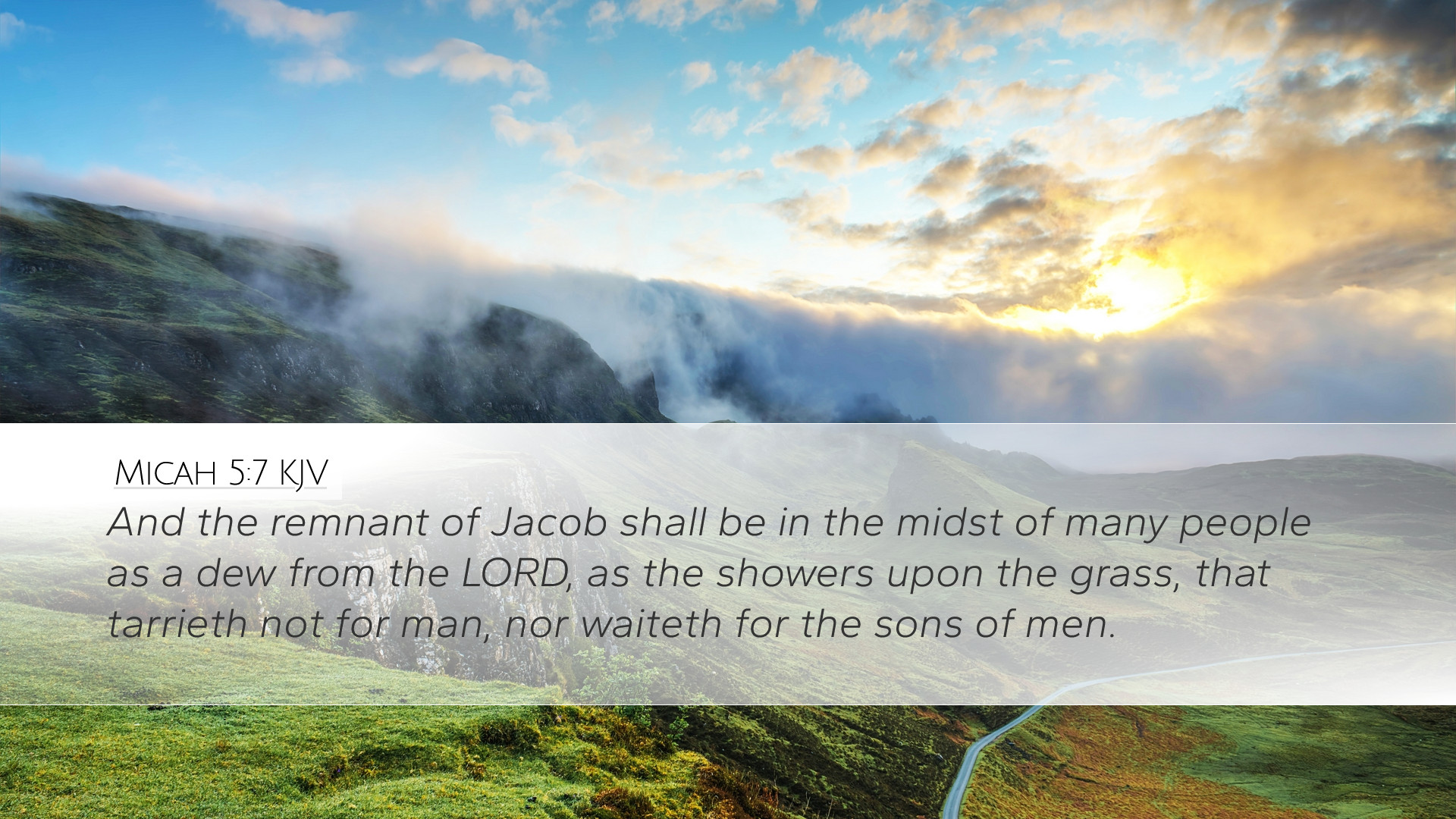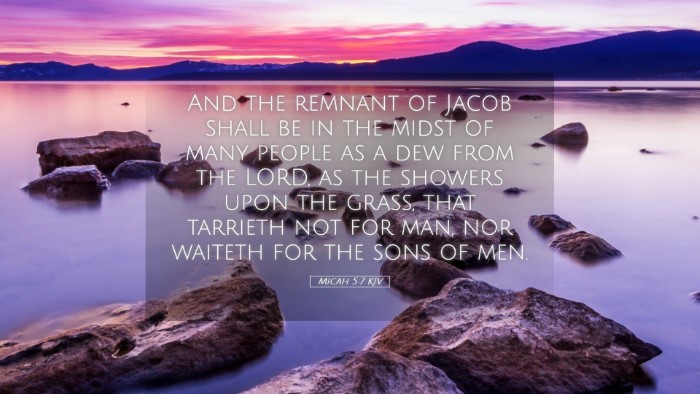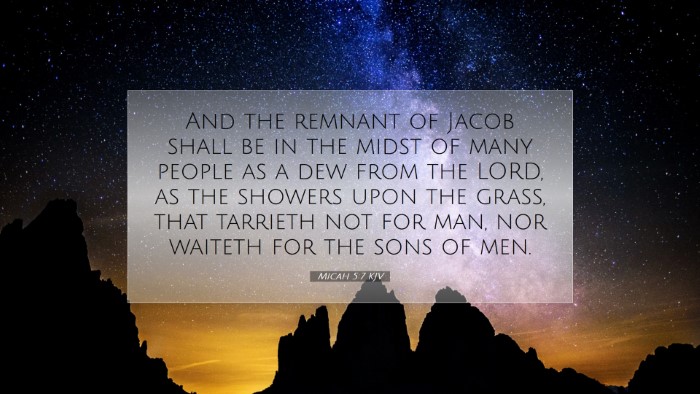Old Testament
Genesis Exodus Leviticus Numbers Deuteronomy Joshua Judges Ruth 1 Samuel 2 Samuel 1 Kings 2 Kings 1 Chronicles 2 Chronicles Ezra Nehemiah Esther Job Psalms Proverbs Ecclesiastes Song of Solomon Isaiah Jeremiah Lamentations Ezekiel Daniel Hosea Joel Amos Obadiah Jonah Micah Nahum Habakkuk Zephaniah Haggai Zechariah MalachiMicah 5:7
Micah 5:7 KJV
And the remnant of Jacob shall be in the midst of many people as a dew from the LORD, as the showers upon the grass, that tarrieth not for man, nor waiteth for the sons of men.
Micah 5:7 Bible Commentary
Commentary on Micah 5:7
Micah 5:7 states:
"And the remnant of Jacob shall be in the midst of many people as a dew from the Lord, as the showers upon the grass, that tarrieth not for man, nor waiteth for the sons of men."
Introduction
This verse serves as a profound declaration of hope for the remnant of Israel, emphasizing God's sustaining grace amidst adversity. The vivid imagery of dew and rain captures the essence of divine provision and blessing. As we delve into the insights from esteemed public domain commentaries, we will uncover the theological and pastoral significance of this verse to aid pastors, students, theologians, and Bible scholars in their understanding and application of the text.
Theological Context
Micah prophesies during a time of great moral decline in Israel, where idolatry and corruption were rampant. The prophecies of destruction are juxtaposed with promises of restoration, reflecting God's covenant faithfulness. This verse specifically points to the remnant—a theme prevalent throughout the Scriptures.
Insights from Matthew Henry
Matthew Henry notes that the “remnant of Jacob” symbolizes those who remain faithful to God amidst widespread apostasy. He emphasizes that God has always preserved a group of believers who remain true to Him. The comparison to “dew from the Lord” illustrates the way God's grace refreshes and sustains His people: it is gentle, quiet, and essential for life, yet often overlooked.
Insights from Albert Barnes
Albert Barnes elaborates on the metaphorical usage of dew and rain, suggesting that they depict the silent yet effective working of God's Spirit among His people. He points out that just as dew does not depend on human effort, God's blessings come freely and abundantly, independent of our merit. This indicates a divine initiative—God’s grace operates without requiring human intervention.
Insights from Adam Clarke
Adam Clarke highlights the significance of the “midst of many people,” indicating that the remnant would not be isolated but would interact with diverse nations. Clarke stresses that the presence of the faithful is meant to bless and transform society, as dew nourishes the ground unnoticeably yet effectively. This is a call for Christians to live out their faith in the world, fostering an environment where God's grace can be experienced by many.
Application for Pastors and Theologians
This verse and its interpretations serve as a powerful reminder for pastors and theologians that God works in remarkable ways through a small and faithful remnant. The insights gleaned from the commentaries can shape congregational preaching and teaching strategies.
- Encouragement for the Faithful: Pastors should communicate the importance of perseverance in faith, using this verse to encourage believers that God sees and values their faithfulness.
- Understanding Divine Blessing: The concept of dew as a symbol of grace can be used to teach congregants about the sovereignty of God in showering blessings upon His people, often in ways that are subtle yet profound.
- Missional Living: The call for the remnant to be in the “midst of many people” is a challenge for the church to engage actively with the culture, bringing the transformative power of the Gospel to bear in various societal contexts.
Conclusion
Micah 5:7 serves as a rich source of understanding God’s grace and the vital role of the faithful remnant. The commentary insights from Matthew Henry, Albert Barnes, and Adam Clarke collectively affirm that God's purpose operates through His people, calling them to be agents of His blessings. It encourages a life of faithfulness, dependence on God's grace, and active engagement with the world, ensuring that the powerful imagery of dew is realized in the lives of believers today.


